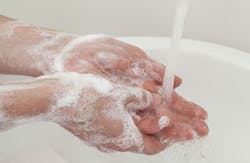FDA to propose rules for antibacterial soap safety regulation
The U.S. Food and Drug Administration (FDA) is planning to introduce new safety standards for liquid soaps and antibacterial washes, in a bid to address public health concerns regarding one of the most commonly used ingredients in their production — triclosan or triclocarban.
The chemical has been linked to hormonal imbalances and antibiotic resistance, so the FDA has decided to implement new safety measures that would allow such products to be sold on the U.S. market only if they are proved to be safe, the watchdog announced in a statement.
RELATED: Triclosan in waterways leads to boom in resistant bacteria, study claims
Triclosan usage has been the subject of debate ever since the 1970s, when the FDA tried to limit its use in consumer products. Some manufacturers have already implemented voluntary programs for phasing out the chemical, even though there is no solid evidence that triclosan has any negative or positive effect on health, the FDA said. The new rules would affect up to 2,000 soap products but would not include hand sanitizers, mouthwash, cleaners or cosmetics.
The proposal will be open for public comment over a period of six months, with an extra 60-day rebuttal period. The standards will then be finalized and are set to come into effect one year later.
Implementing the rules may be mandatory for manufacturers but many have already expressed criticism of the proposals. According to the American Cleaning Institute, there are two separate studies that prove the beneficial effects of antibacterial soap usage.
